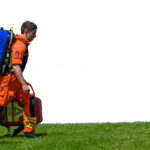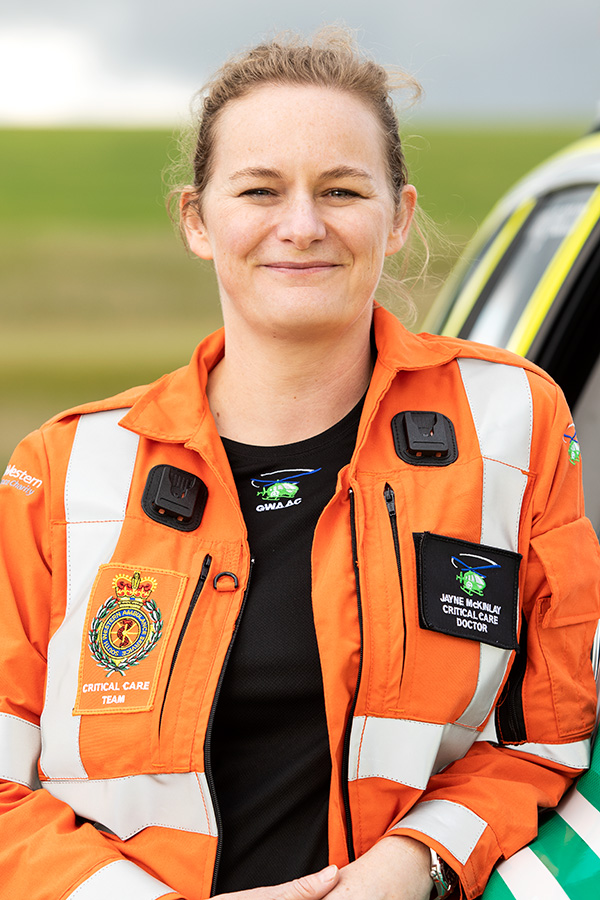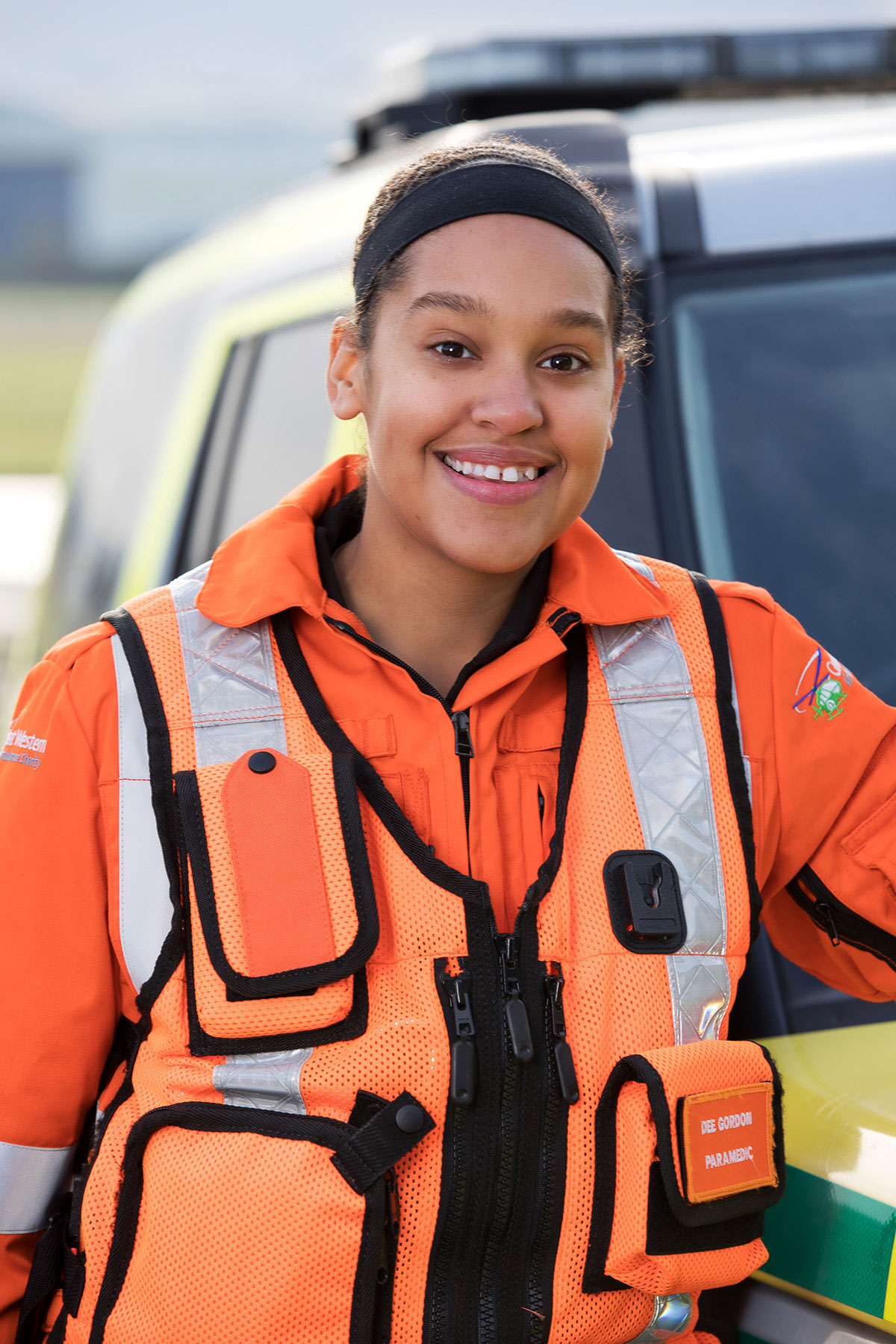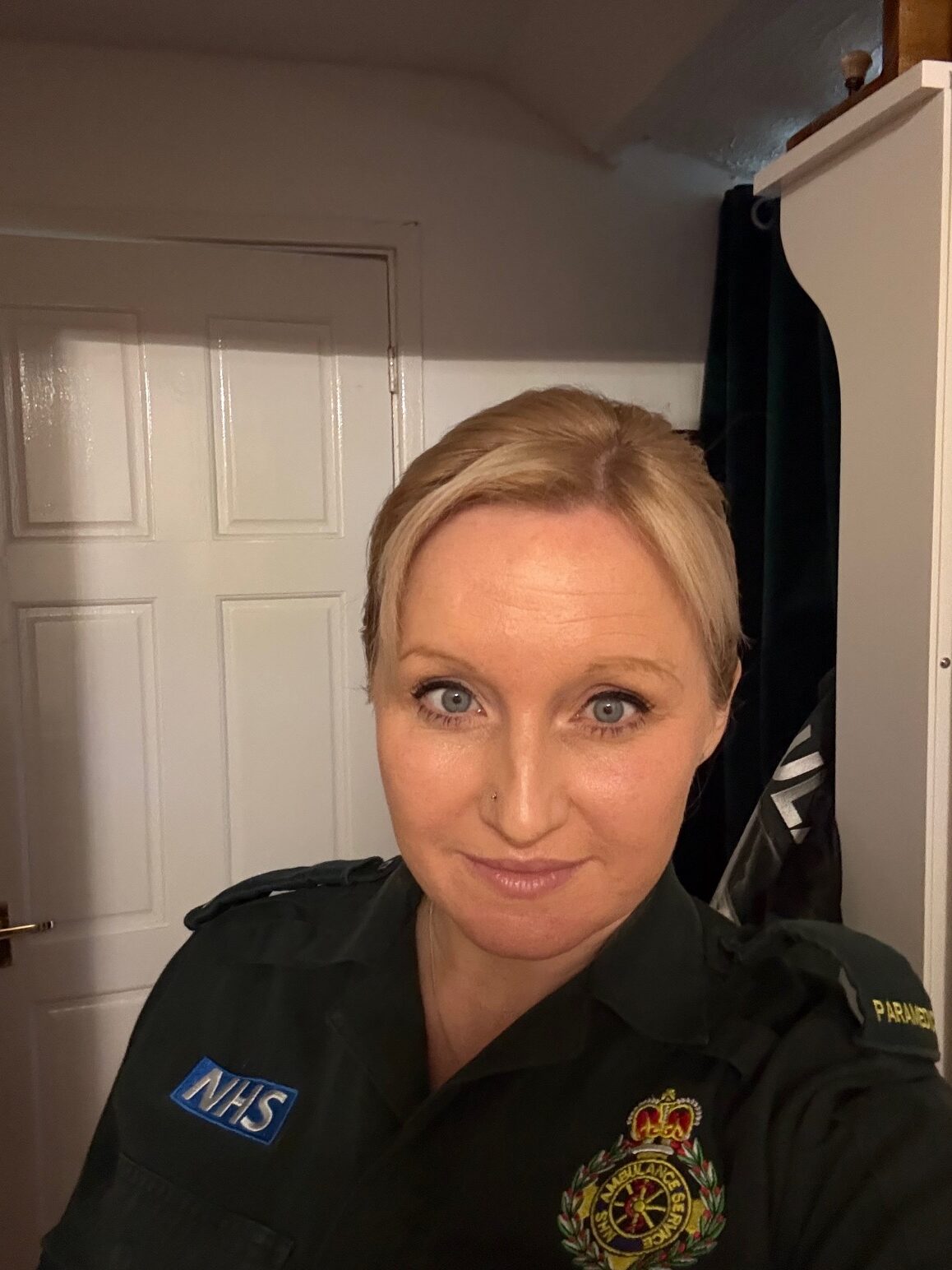
2024 Year in Review – part 1
March 28, 2025
Can you host a textile bank?
April 2, 2025On Saturday 8 March 2025, we celebrated International Women’s Day by asking Zoe Boswell, a Heartstarters Volunteer and aspiring Specialist Paramedic in Critical Care, and our social media audience if they had any questions for our female crew about life at GWAAC and working in Pre-hospital Emergency Medicine (PHEM).
We collated Zoe’s questions with those from our online audience and we presented them to our female Advanced Clinical Practitioner in Critical Care (ACP-CC), Critical Care Doctors and Specialist Paramedics in Critical Care (SPCC). Here is what they said:
What initiatives or changes would you like to see within the air ambulance sector to better support women?
“I would love to see more mentorship and sponsorship programmes that support individuals from diverse backgrounds in the air ambulance sector. These initiatives can provide guidance and support through career development, helping everyone navigate the unique challenges they may face. Additionally, implementing flexible working arrangements and promoting inclusive policies can create an environment where all staff members can thrive, regardless of their personal circumstances.”
– Critical Care Doctor Jayne McKinlay
“Uniform that fits all shapes and sizes!”
– ACP-CC Vicki Brown
How difficult is it to manage family life with such a demanding job?
“Balancing my role with personal commitments is definitely a juggling act! Communication is key—both with my family and my teams at work. I prioritise my schedule and make sure to carve out quality time with my kids. Self-care is important too; I try to set aside time for myself, even if it's just a quiet moment with a tv show or a quick workout.”
– Critical Care Doctor Jayne McKinlay
What advice would you offer to women aspiring to work in Helicopter Emergency Medicine Services?
“My advice would be to stay resilient and pursue your passion. Don’t be afraid to seek out mentors who can guide you and inspire you along your journey. Gaining diverse experiences—whether through volunteering, internships, or various roles within the healthcare sector—will make you a strong candidate. Lastly, embrace the challenges; they often lead to the most rewarding experiences.”
– Critical Care Doctor Jayne McKinlay
“Follow your aspirations. It should no longer be seen as an alpha male dominated job and there are many females working successfully in HEMS. Feel free to reach out as I’m sure any of us (women at GWAAC) would be happy to chat.”
– ACP-CC Vicki Brown
“Come and join us! It’s a big, supportive, warm hearted and happy family, full of exceptional individuals who I learn so much from. It truly is the best job in the world and I feel privileged to be part of such an incredible team. It is true that it is currently a male dominated specialty, but I have always felt completely included and supported by my male colleagues at GWAAC, and I have never once felt on the outskirts because of being female. If anything, the girls in our team are celebrated by the boys!”
– Critical Care Doctor Sophie MacDougall
“Be yourself. To do this job, you don't need to change who you are.”
– SPCC Dee Dale
Do you think there could be more female representation within HEMS? If so, what steps can the sector take to achieve this?
“I think female representation is getting better, but we are still under represented in some areas of HEMS. We should continue to champion females working in HEMS and ensure flexible working options are available if they’re needed.”
– ACP-CC Vicki Brown
“Yes. I’d love to see more women in HEMS. We are definitely still very outnumbered by the boys! Although I have to say, many of my female medic friends just wouldn’t want to do it - not everyone wants to run around in heavy boots carrying 30kg bags and jumping over fences! Although in my opinion, it truly is the best job in the world.
In terms of the steps we can take to encourage more women to join HEMS, I think it’s about breaking down barriers, showing people how great a job it is, demonstrating that it’s not just a ‘men’s world’ and making sure that women don’t think it’s something unachievable for them. We’ve already had the GWAAC ‘Fem in PHEM’ event, which was a huge success, and I think more of the same, along with social media etc, will help show the women out there that they would be warmly welcomed into a HEMS team.”
– Critical Care Doctor Sophie MacDougall
If you could go back and change anything you did in your time preparing for HEMS selection, what would this be?
“I don’t think I’d change anything. It was nearly 20 years ago that I started on HEMS and it was a slightly different job then to what it is now, with service and paramedic progression.”
– ACP-CC Vicki Brown
“To be honest, I saw the job advert quite late, so I only had about a week to get the application in. For me, that was pretty stressful. If I were to go through the process again, I would be more vigilant in looking for the advert and have my portfolio up to date and together, which would have massively saved on the stress. I had been working on my fitness for a little while, so that was handy for the fitness/capability section of the selection process, but I probably could have been slightly fitter.”
– SPCC Dee Dale
Has there ever been an incident in your career that made you question if you should be in this job and most importantly, how did you overcome this difficult time?
“I’ve never questioned if this is the job I should be in. I’ve been to all sorts of incidents and have always had good support from the teams I work with.”
– ACP-CC Vicki Brown
“Yes, one incident instantly springs to mind. Unfortunately, imposter syndrome is incredibly common. To help overcome this difficult time, I found talking with family and colleagues to decompress and constructively reflect helped the most. Having support both in and outside of work was key for me. I found that training and simulation also helped with the confidence issues I was experiencing.”
– SPCC Dee Dale
How do you celebrate your achievements or milestones in this demanding sector?
“The greatest, and most heartwarming achievement, is to get a message of thanks from the patients or their families that we have treated.
My way of celebrating this is to forward these to my parents and husband. I really do feel it is an incredible privilege to be part of a team that can provide this level of care, and I feel that I am only here and able to do it because of all the support I have had along the way. So, these messages are really something to be shared, because I wouldn’t be able to do this job without the support, sacrifice, and understanding of my family. It is their achievement as much as it is mine.
My parents never pushed me but always supported me. My mum was a nurse practitioner and was an amazing role model to me as a child - caring for other people whilst also bringing up a young family. So, it never occurred to me that being a girl meant I couldn’t work wherever I wanted! My dad always treated me and my brother completely equally - we were both up to our knees in mud / rockpools / climbing trees etc, and so I grew up feeling there was no real difference in what boys and girls could or could not do. I think it’s all these things that feed into a person’s self-belief and allow you to feel you can do anything you put your mind to. I feel so grateful to them for giving me that support, and it’s thanks to them that I have been able to get to this point in my career.”
– Critical Care Doctor, Sophie MacDougall
Are you a paramedic or an in-hospital emergency medicine doctor interested in learning more from our crew? Visit our Clinical Engagement webpage to find out more.

Critical Care Doctor Jayne McKinlay

ACP-CC Vicki Brown

Critical Care Doctor Sophie MacDougall

SPCC Dee Dale

Trainee Critical Care Doctor Celestine Weegenaar

Critical Care Doctor Lily Stanley

SPCC Fleur Rath

SWASfT Paramedic and Heartstarter Zoe Boswell



